The Eurovision Song Contest kicked off its 68th outing early this morning in Malmo Sweden.
The first semi-final saw fifteen countries competing for a spot in the grand final but only ten were able to progress.
Australia was represented by Electric Fields who performed their song One Milkali (One Blood). It was the first time a digeridoo was part of Eurovision, and the first time a song has included an Indigenous Australian language.
Part of Australia’s song is sung in the Yankunytjatjara language from the Western Deserts of South Australia.
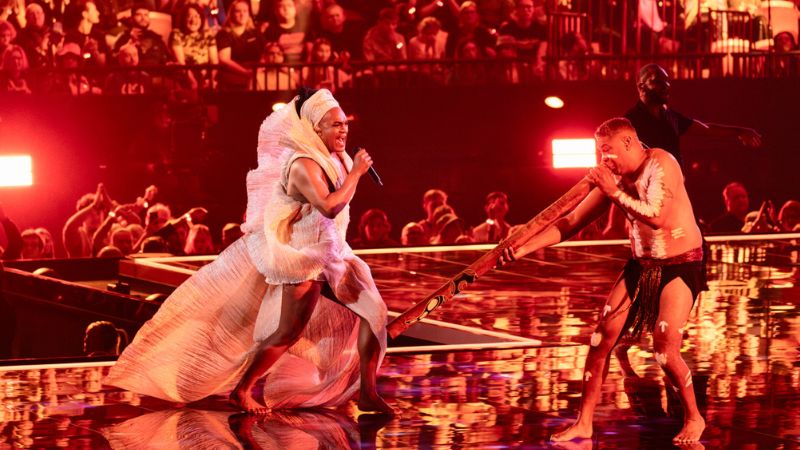
Sadly though, there were not enough votes for Australia, and we were knocked out of the completion.
Australia joined Poland, Iceland, Moldova and Azerbaijan who all ended their Eurovision journey. It was Australia’s ninth appearance in the competition, and the second time we’ve failed to make it to the final.
In 2021 Montaigne’s song Technicolour failed to impress audiences, but the singer was forced to perform remotely due to the coronavirus pandemic.
This year the voting for the completion has changed slightly. The semi-finals are now based purely on audience vote, as where they previously had fifty per cent of their score from a jury vote of industry professionals. Now the jury vote is only considered at the grand final stage,
Who did get through to the next stage?
Australia is not going to win this year, but an Australian is still in the running.
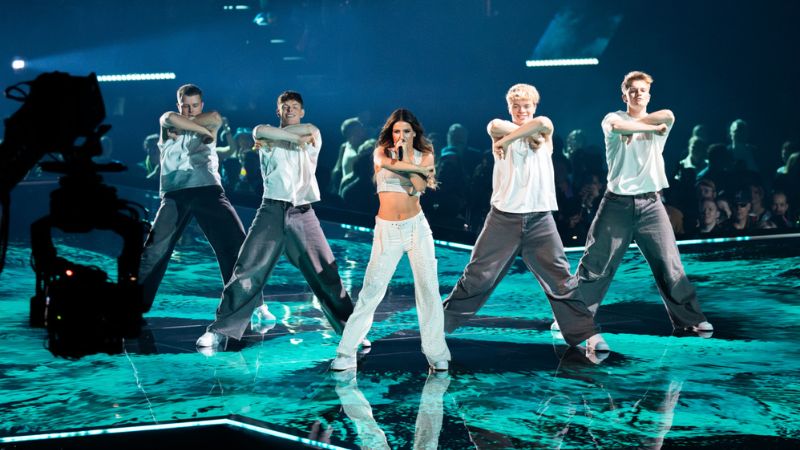
Cyprus – Liar
Silia Kapsis is representing Cyprus, but she’s from Sydney.
Her song Liar might see Cyrus win the competition for the first time in their four decades of participating. It’s a very catchy tune and she’s back four very attractive backing dancers who swirl around her with hip-hop dance moves before they rip off their t-shirts.
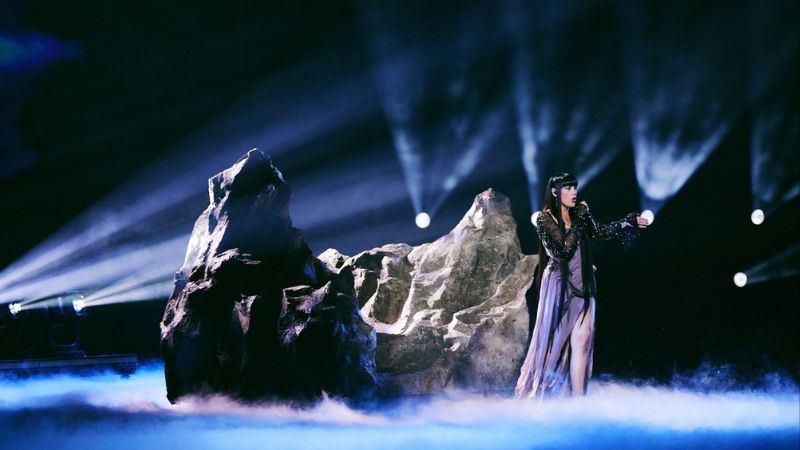
Serbia – Ramonda
Teya Dora is representing Serbia with the ballad Ramonda. She’s one of many artists who’ve included a rock in their stage setting this year. Why are there so many rocks? We don’t know. The song is a patriotic ballad, the Ramonda is a flower which was a symbol of the people’s struggle in World War I.
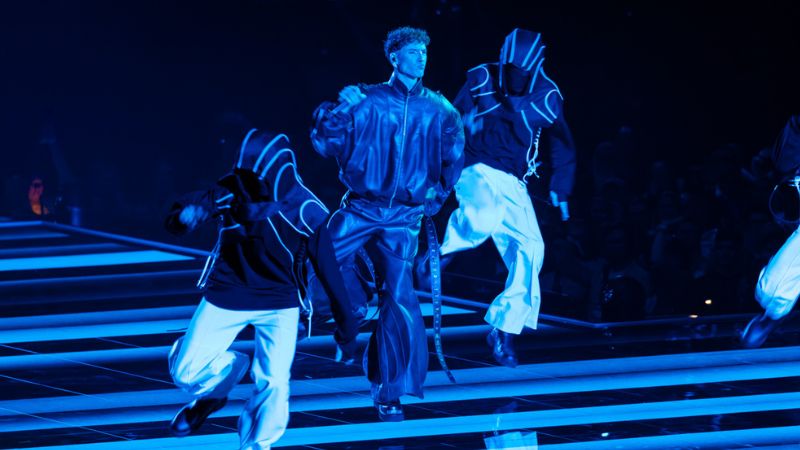
Lithuania – Luktelk
Silvester Belt has been dubbed the Troye Sivan of the competition, not only because of his similar resemblance but also because of his sound.
The song is sung in Lithuanian and has already been a number one hit in his home country. He has some backing singers in hoodies who look like they might mug you in a dark alley.
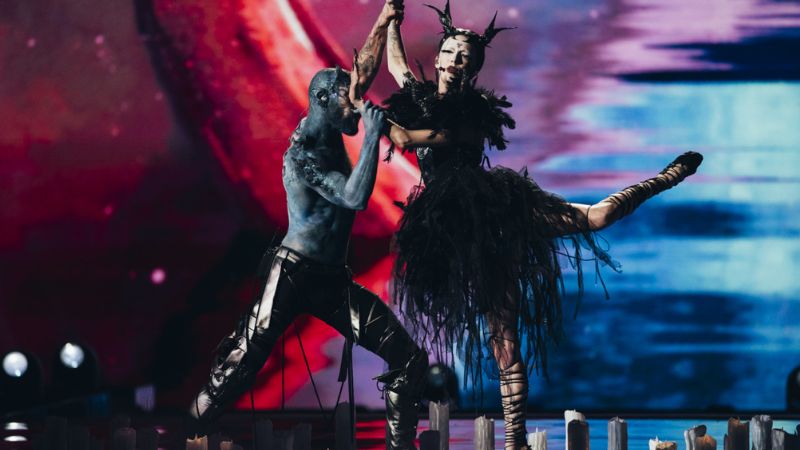
Ireland – Doomsdays Blue
Ireland has their best result in a long time, they’ve failed to make it to final six years in a row. Myf Warhurst described this song from Bambu Thug as “bonkers”.
The gothic styled tune is screamo metal, pop and electro thrown in a blender. The video for the song features the transgender flag, which Bambi Thug was waving throughout the judging process.
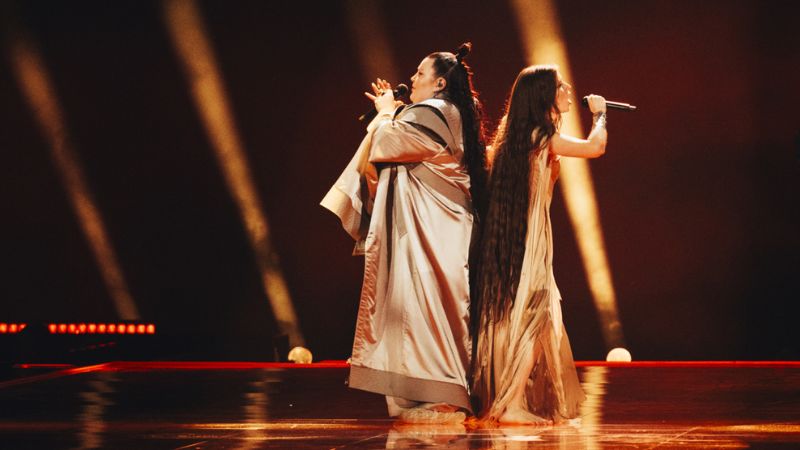
Ukraine – Teresa & Maria
Ukraine is represented by singer alyona alyona and rapper Jerry Heil. The song is said to be inspired by Mother Teresa and the Virgin Mary.
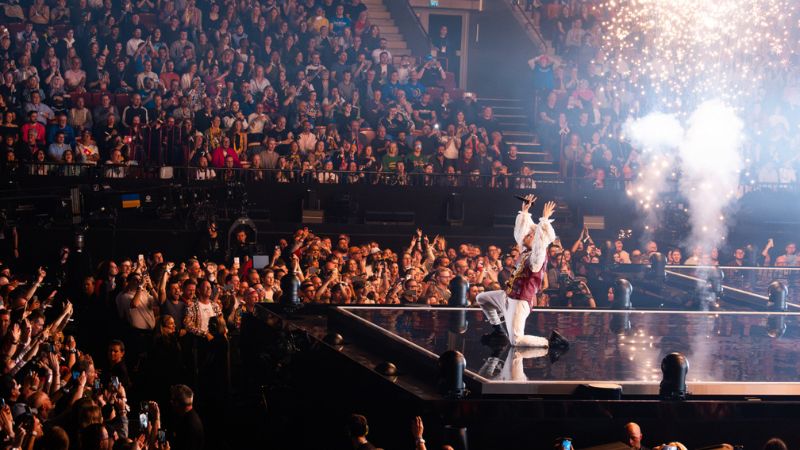
Croatia – Rin Tim Tagi Dim
Baby Lasagna is one of the favourite’s to win this year. This song certainly stands out from the crowd and was well received.
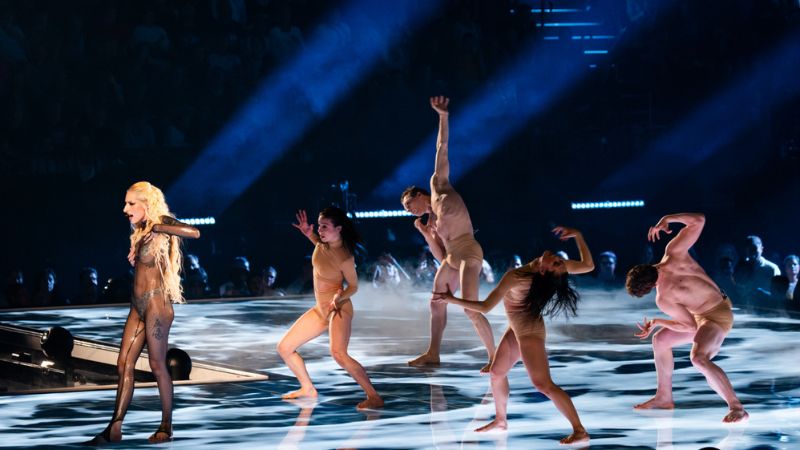
Slovenia – Veronika
Rock band Joker Out represented Slovenia this year, and band member Bojan Cvjetićanin has contributed two the writing of this tune. Performer Raiven has a troupe of interpretive movement dancers clad in flesh coloured outfits. The song is about witch trials.
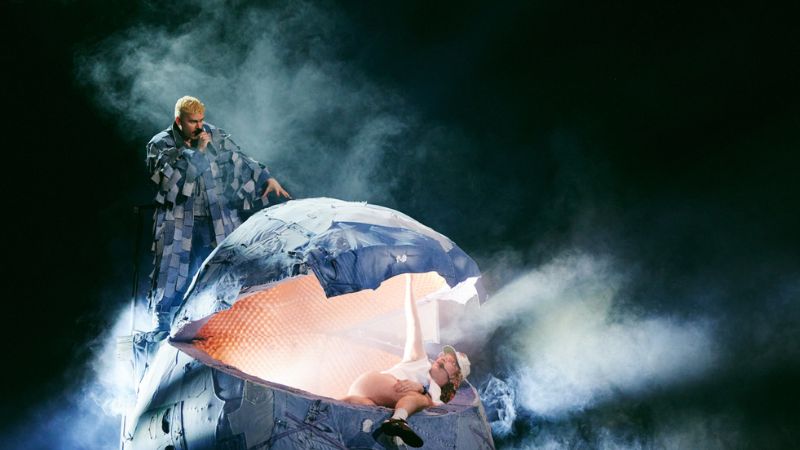
Finland – No Rules!
One of the wackiest entries of the year, it begins with giant denim egg cracking open, and the singer looks like he has no pants. There’s another singer in a big denim coat, then two backing dancers who look like they escaped from an early 90’s boy band turn up. Eventually the singer gets some shorts.
We were so distracted by all this we forgot to listen to the song. Don’t dismiss crazy staging though, last year’s winner Loreen was in a giant panini press.
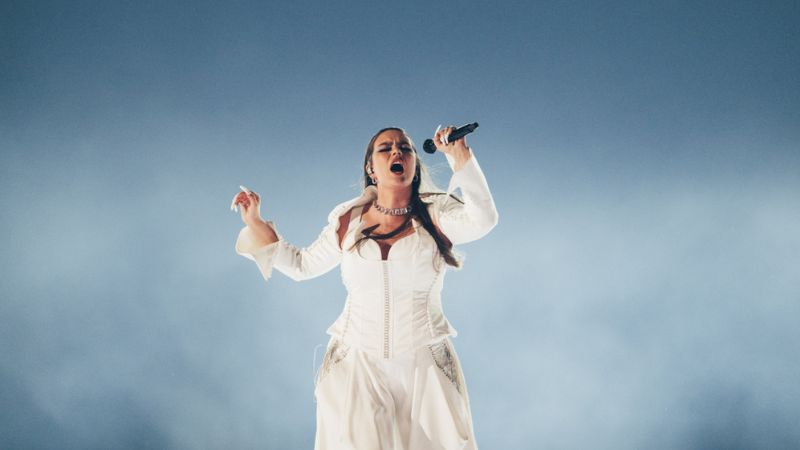
Portugal – Grito
Iolanda is singing the tune Gritto which means shout. It’s a tune about forging on through mental health challenges. The performance includes more interpretive dance, her dancers look like they’re off to a fencing lesson.
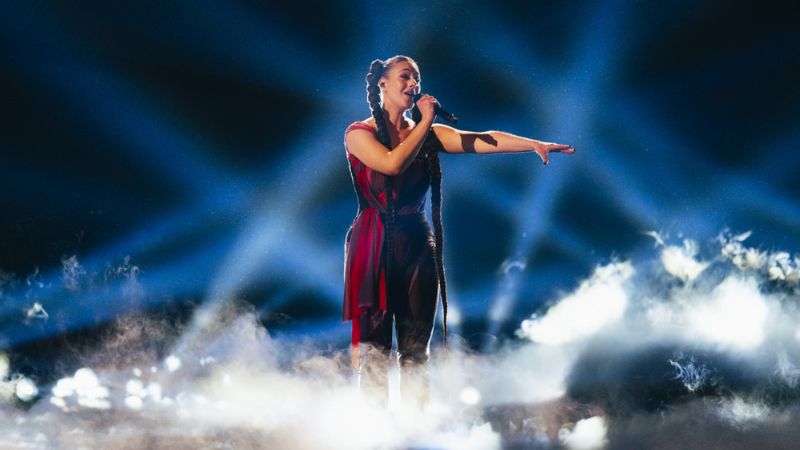
Luxembourg – Fighter
Tali is representing Luxembourg with the tune Fighter. They haven’t taken part for the last 31 years. The countries gay Prime Minister Xavier Bertell has been very instrumental in getting them back into Eurovision. Tali has a lot of hair.
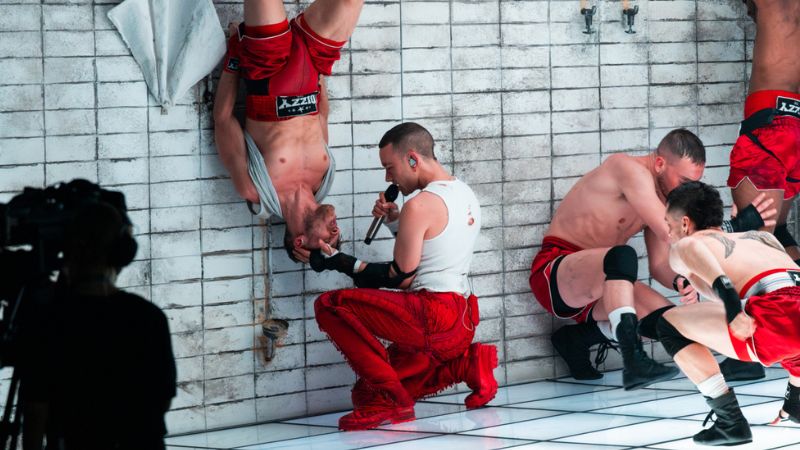
Audiences also got a look at the entry from Great Britain. As one of the competition’s ‘Big 5’ Oli Alexander is already in the grand finale, but this year they are performing their numbers in full during the semifinals.
Alexander is without doubt one of the biggest stars to sign up to Eurovision in recent years, and his staging is impressive with things appearing upside down. It’s the most homoerotic performance in the competition.





